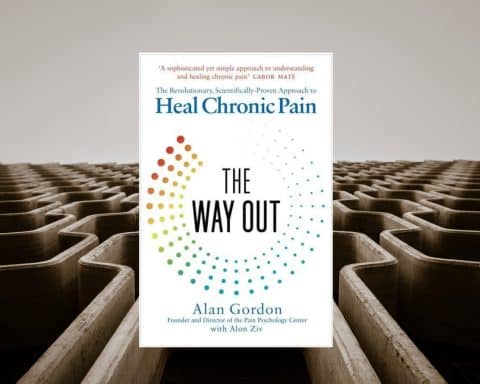 Judith Dawson is a salaried GP and GP Trainer in Kettering. She is also the national Clinical Lead for Leonard Cheshire.
Judith Dawson is a salaried GP and GP Trainer in Kettering. She is also the national Clinical Lead for Leonard Cheshire.
One of the many impacts of the coronavirus pandemic has been on the already complex interplay between the NHS and the private sector.
During the worst of the lockdown in March, significant government funding underpinned the finances of the main private providers in order to purchase additional capacity for treating public-sector patients. All of the funding for ‘NHS’ Test and Trace has gone into the private sector, preventing development of a sustainable legacy for COVID-19 testing capacity in the health service, and delivering lucrative contracts to Serco and Deloittes.1
Even now, after the NHS should be returning to business as usual, in some parts of the country it is possible only to access screening for malignancy through private referral, including for patients who fall into groups where regular monitoring is recommended owing to genetic risk or previous malignancy.
All of the funding for ‘NHS’ Test and Trace has gone into the private sector, delivering lucrative contracts to Serco and Deloittes
From the letters that cross my desk, there is also an increase in private activity where patients are starting to self-refer to clinicians such as dermatologists rather than approach our practice for an NHS referral.
Commercially run private-sector clinics for cosmetic surgery are accepting patients for procedures under general anaesthetic with the requirement for regular follow up, such as breast implant reaugmentation, at a time when the perioperative risks associated with COVID-19 are significant and some lifesaving procedures are not available in the state sector. There is also an expansion in dedicated private cancer treatment centres offering chemotherapy with no delay to treatment.2
Yet, in economic terms, health is classified as an area where market failure is well known to occur and frequently discussed as a poor candidate for private provision. This is because there is an information asymmetry between the purchaser or patient and the deliverer of services.
I wonder how GPs choose which private consultant they refer to? Do we merely rely on the choice of the patient, based on hearsay or rating websites? Or do we refer to a ‘doctor’s doctor’ with little knowledge of the actual patient experience? A consultant who delivers excellent service in an NHS facility, with a full team of physiotherapists, expert nurses, and administrative staff may not be as effective in the private sector without such additional support.
Those GPs who have been partners for many years and become used to carrying the burden of responsibility for every aspect of their organisations may be surprised to learn that there is no obligation for private clinicians to provide any continuity of care for outpatients or to notify them of change of premises or retirement.3 This is particularly of concern in view of the expanding market in cancer care.
From the letters that cross my desk, there is an increase in private activity where patients are starting to self-refer rather than approach our practice
There also continues to be a lack of accountability in that some private hospitals do not maintain supervision of the practice of the consultants who use their premises, regarding themselves effectively as landlords providing office space. This was clearly demonstrated in the inquiries into the actions of Ian Paterson, whose criminal behaviours had persisted, unchallenged, for many years.4
There is also a factor of immobility causing market failure in health care, in that complex procedures require sophisticated facilities that cannot be relocated easily or distributed equitably geographically among customers.
Such an issue arose in 2019 when the Churchill Hospital in Oxford, an internationally renowned oncology centre, nearly lost the contract for in house PET scan provision.5 This would have meant that cancer patients would need to travel off site to a private company for these scans even though they form an integral part of the planning of their cancer treatment.
Only a public outcry prevented this from occurring. Private hospitals rarely have access to high dependency or intensive care beds, despite administering treatments such as chemotherapy, which could result in life-threatening complications. There is no form of levy on them to support these facilities in the NHS, and so they can avoid the costs associated with this back-up provision for the surgery and treatments they provide.
As doctors, we are also seeing a shift in employment away from the NHS for multiple reasons. A recent BMA survey showed that nearly 50% of UK consultant physician vacancies remain unfilled.6 Working in the private sector often means clinicians have more pleasant work environments, welcome additional income, and are treated with more respect by hospital managers who need the profits derived from their patients.
The legacy of this for the future is likely to be a more opaque and uneven provision of medical care with a much higher inequality in access. Is this what we really want for our families and our society? With the major impact on public finances resulting from the pandemic, it is time to think carefully about our choices and influence.
References
1. Garside J, Neate R. UK government ‘using pandemic to transfer NHS duties to private sector.’ The Guardian 2020; 4 May: www.theguardian.com/business/2020/may/04/uk-government-using-crisis-to-transfer-nhs-duties-to-private-sector (accessed 30 Nov 2020).
2. GenesisCare. UK clinician information: GenesisCare continues to treat without delay. 2020. https://www.genesiscare.com/uk/uk-clinician-information-genesiscare-continues-to-treat-without-delay (accessed 30 Nov 2020).
3. Royal College of Surgeons of England. Good surgical practice: 4.3.2 private practice. 2020. https://www.rcseng.ac.uk/standards-and-research/gsp/domain-4/4-3-2-private-practice (accessed 30 Nov 2020).
4. Department of Health and Social Care. Report of the independent inquiry into the issues raised by Paterson. 2020. https://www.gov.uk/government/publications/paterson-inquiry-report (accessed 30 Nov 2020).
5. Lyons E. Churchill will keep Oxfordshire PET-CT scan service. Oxford Mail 2019; 3 Sep: https://www.oxfordmail.co.uk/news/17878507.churchill-will-keep-oxfordshire-pet-ct-scan-service (accessed 30 Nov 2020).
6. Munro C. Nearly half of advertised consultant physician posts left unfilled, census finds. BMJ 2020; 371: m4462.
Featured photo by Nicolas J Leclercq on Unsplash






